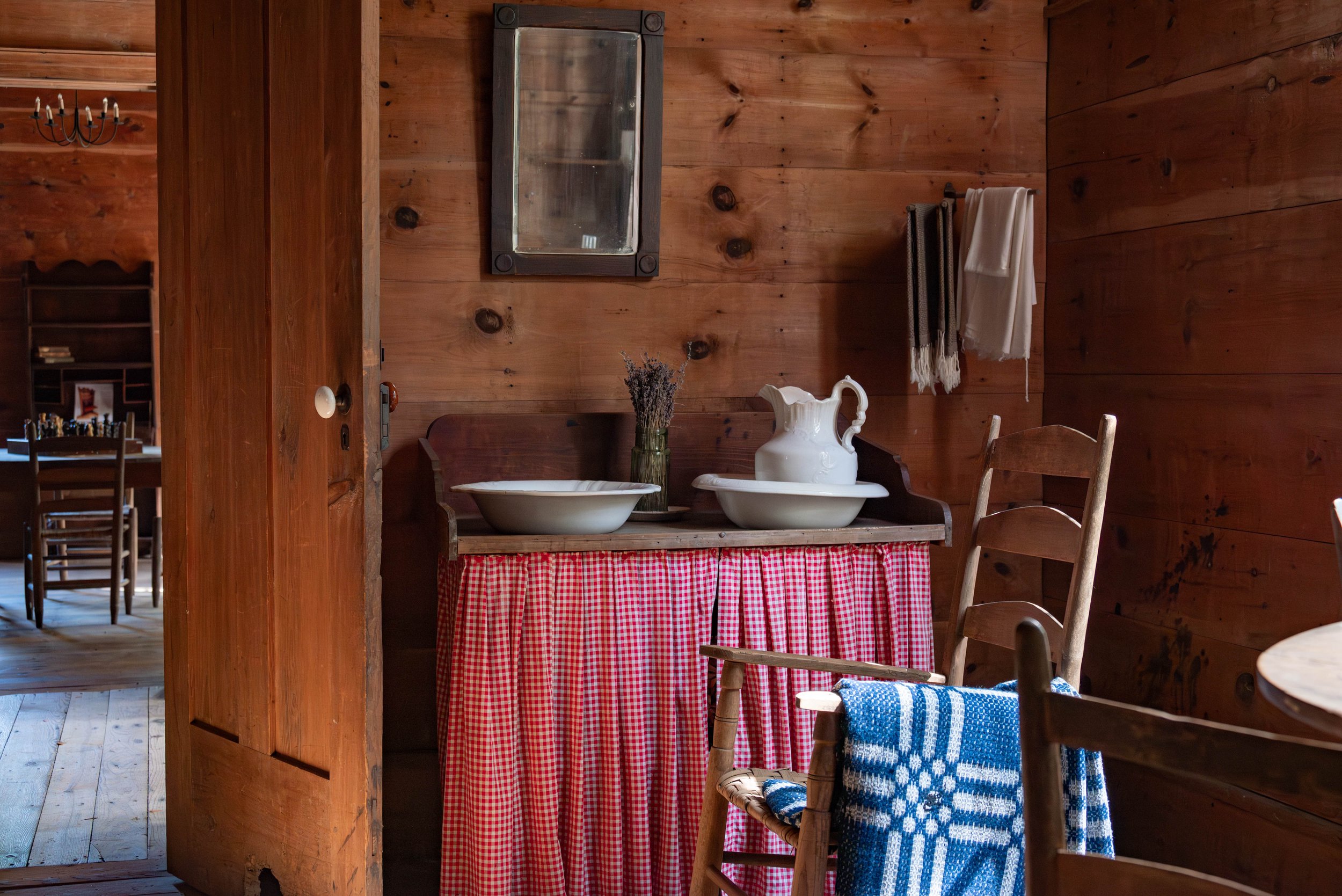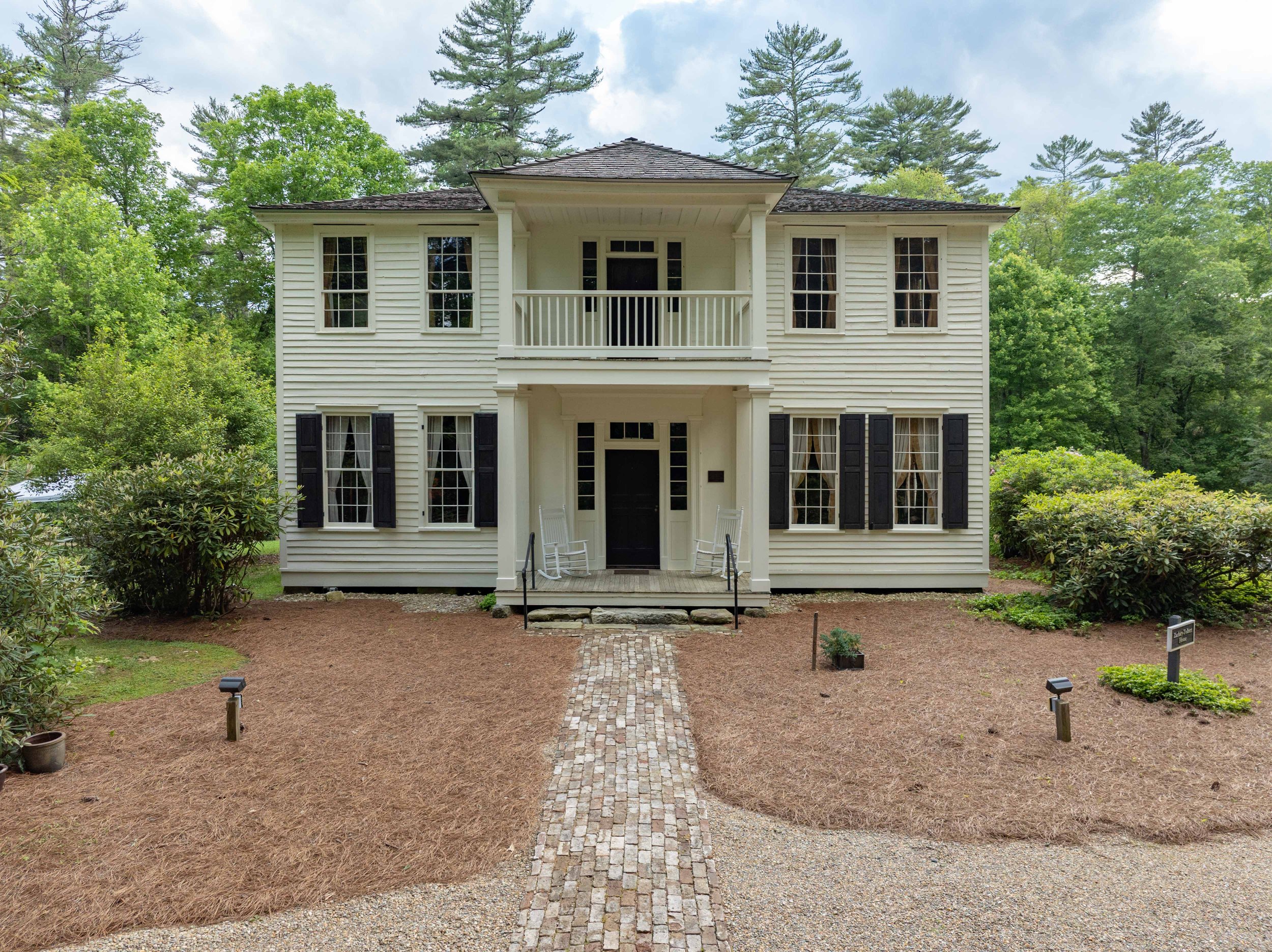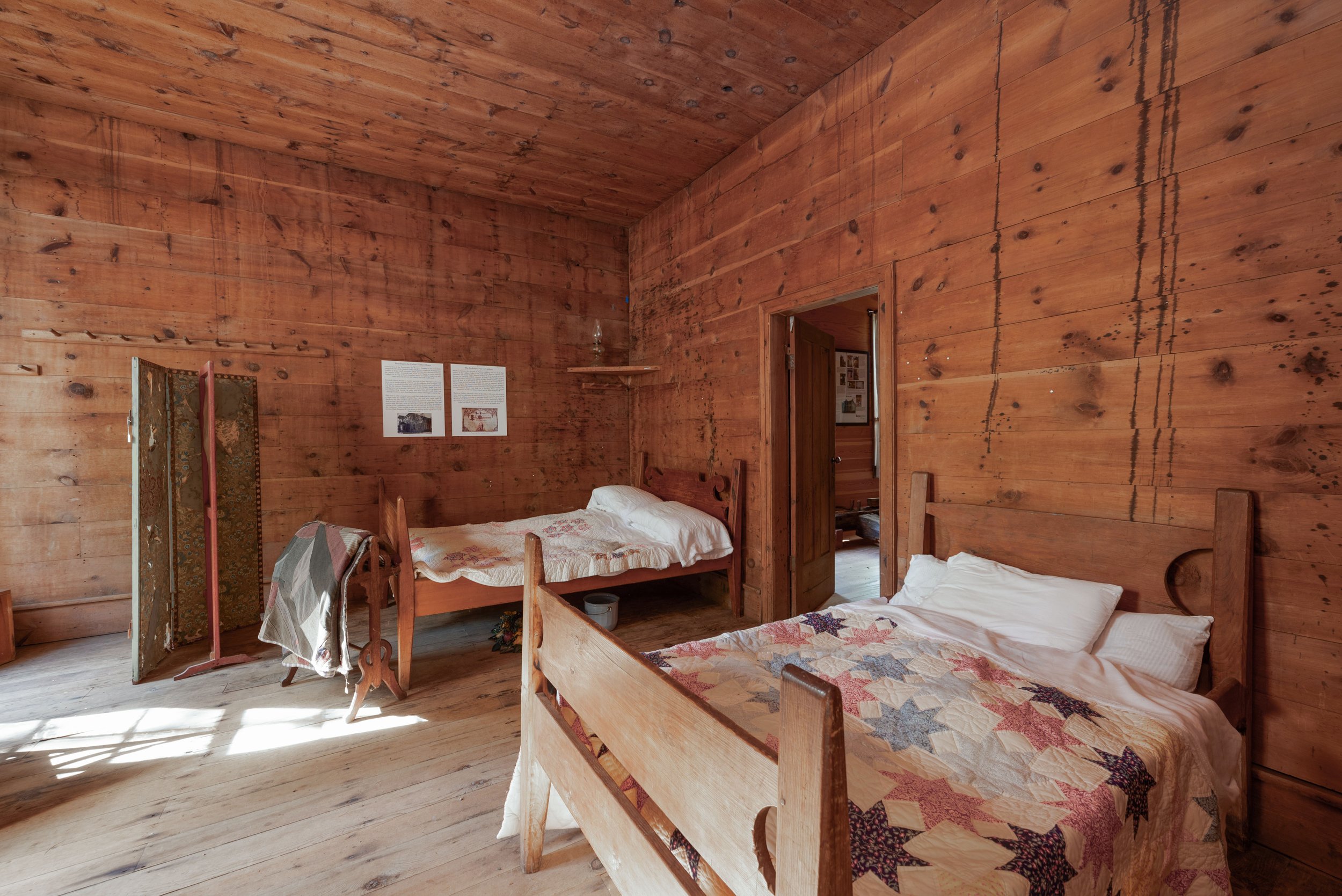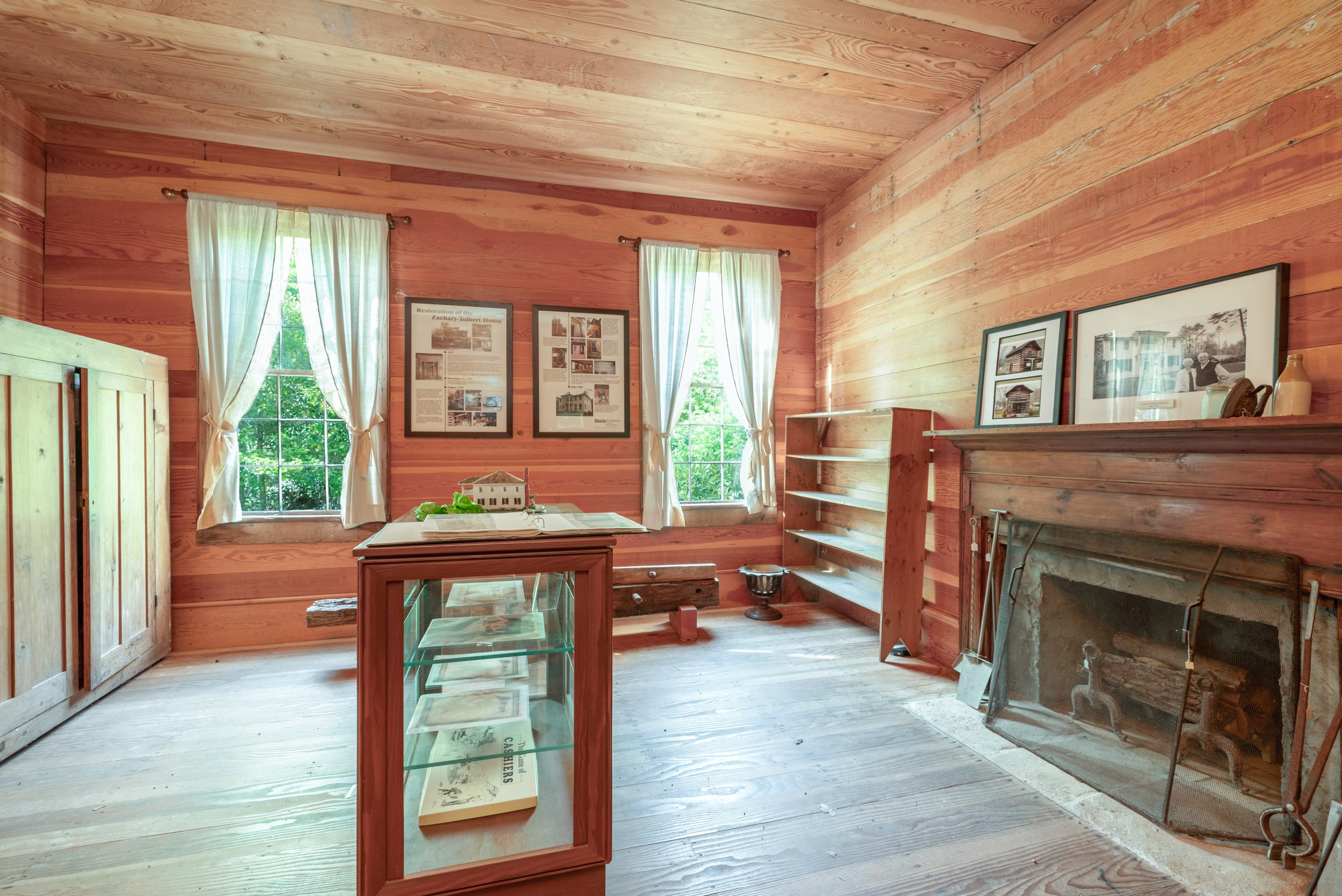
The Zachary-Tolbert House
Circa 1840
GREEK REVIVAL JEWEL
The Cashiers Historical Society owns and operates the c. 1852 Zachary-Tolbert House Museum, listed on the National Register of Historic Places.
Nestled in the Blue Ridge mountains, the verdant Cashiers Valley served as the summer hunting and fishing grounds of the Cherokee. In 1819, though a treaty with the U.S. Government, the land was opened to settlement. Pioneers began to arrive and homestead, soon followed by affluent landowners from South Carolina's Up State and Low Country escaping the oppressive summer heat.
Among the earliest families were Nortons, McKinneys, and the Zacharys/ Mordecai Zachary, who build the House, was the 11th of 14 children born to John and Sallie Zachary, arriving with his parents at age 9, in 1832.
The eight room Zachary-Tolbert House is an outstanding example of a vernacular, Greek Revival residential structure with a rear kitchen dependancy. Mordecai Zachary, using the hand tools of the era, was a skilled carpenter and woodworker as evidenced in the details of the home's mortised framing, tongue and groove construction of interior walls and well designed furniture. Many of the original glass windows and hardware remain today. The original bricks for the four fireplaces were handmade at a Zachary family brickyard, the lumber coming from the family's sawmill.
A simple logging cabin, relocated from Whiteside Cove stands directly behind the main structure. It replaced the first kitchen dependency, which burned in the 1920's.
The Zachary-Tolbert House was placed on the National Register of Historic Places in 1999.








Operational Hours
CHS Buildings are open Friday & Saturday, 11:00am – 3:00pm, Mid-May through Mid-October or by appointment.
Cashiers Historical Society’s campus encompasses five+ acres and four historic buildings that tell the history of Cashiers from the 19th century to the present. Our campus includes Colonel John’s Cabin, the oldest standing residential structure in Jackson County, the the Zachary-Tolbert House (1850), a National Register of Historic Places designated site, the Hampton Schoolhouse, and the Dependency, a structure moved from a 20th-century logging camp in Whiteside Cove.

